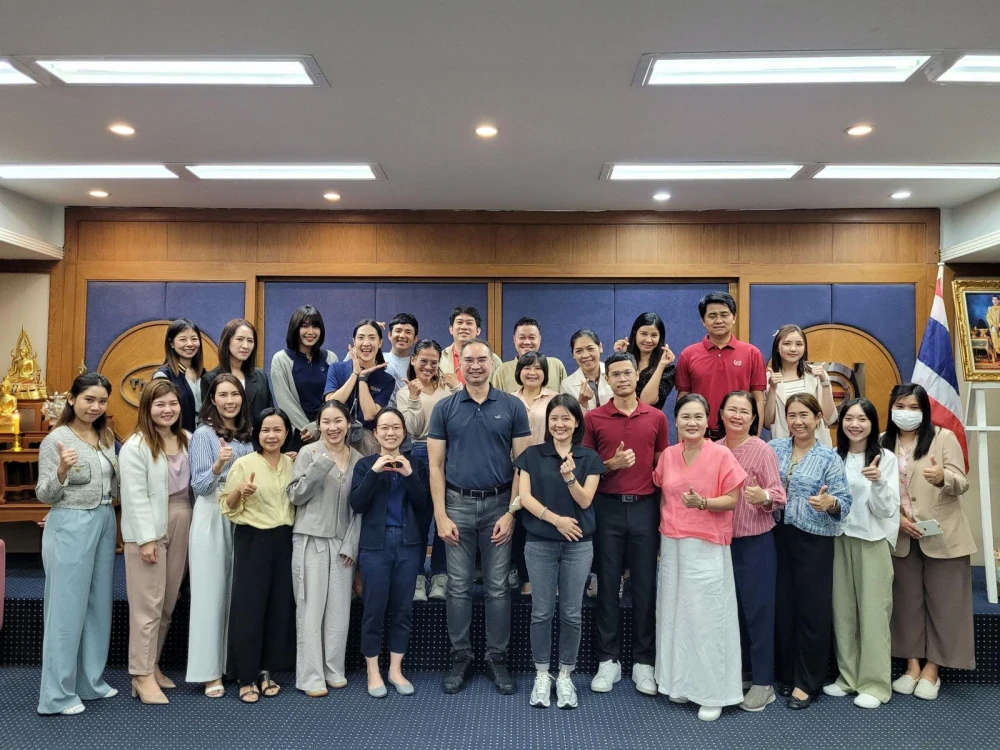Importance and Mission
The Company places great importance on managing human rights issues in business operations and activities systematically. It conducts business based on respect for the rights of all stakeholder groups, including people with diverse gender identities (LGBTQIA+), vulnerable groups, and disadvantaged individuals. The Company embraces differences equally, whether in terms of thought or social background, and incorporates this principle into its business operations to prevent risks and impacts from human rights violations. Accordingly, to demonstrate its commitment to managing human rights issues, the Company has established a Human Rights Policy that strictly follows international human rights standards.
In addition to respecting the human rights of all stakeholder groups, the Company has also established and announced a Social Responsibility Policy on Labor that emphasizes the prohibition of forced labor, nondiscrimination, child and female labor, labor relations, sexual harassment, workplace violence, and workplace safety. This policy serves as a guideline and operational framework to promote equality and fairness.
Goals and Performance
Impact and Performance Highlights
No human rights complaints within the organization and from the Company’s business operations.
All high-risk human rights issues (100%) have been reviewed by the relevant departments
Management Approach
The Company recognizes the impact of human rights issues on stakeholders throughout the supply chain, as business activities play a significant role in promoting positive impacts on local economic development, creating jobs for local communities, and improving the quality of life by providing access to public utilities and infrastructure. However, Saha Group Industrial Park operations present risks and opportunities related to human rights violations of stakeholders, including the creation of pollution that negatively affects health and disrupts the quality of life, as well as unsafe working conditions for employees within the area to support compliance with human rights principles and to manage potential human rights impacts throughout the business value chain.
The Company has established a comprehensive process for monitoring and assessing Human Rights Due Diligence. This process follows the United Nations Guiding Principles on Business and Human Rights (UNGP) to address human rights risks and foster a culture of respect for human rights within the organization.
Human Rights Policy Corporate Social Responsibility Policy on LaborHuman Rights Due Diligence Process
Human Rights Risk Analysis and Assessment
The Company conducted a Human Rights Due Diligence: HRDD throughout the business value chain in accordance with the United Nations Guiding Principles on Business and Human Rights (UNGP). This process requires the consideration of four fundamental human rights, including labor rights, rights to natural resources and the environment, customer/consumer rights, and rights to housing and occupation. The assessment also involved analyzing incidents or situations related to human rights violations resulting from business activities that directly affect the Company’s stakeholders. The analysis was based on the principle of identifying the connection between the Company or its activities and human rights impacts in three cases, which include:
Cause - The organization or business activities cause the impact.
Contribute - The organization or business activities contribute to the impact.
Link to – The organization or business activities are linked to the impact.
Human Rights Risk Ranking
Based on the analysis of human rights risk incidents or issues, the Company has assessed the severity and likelihood of occurrence to determine the level of human rights risk using a Risk Assessment Matrix. This matrix helps assess the severity of human rights violations to establish and review measures to eliminate, reduce, and prevent human rights risks, ensuring they remain at an acceptable level if the risk is identified as high. Additionally, the Company has established and reviewed measures for remedying the impact in cases where human rights violations occur within business activities. The Company has also disclosed the severity level and the likelihood of impact resulting from this analysis on its official website.
Establishment of Measures and Guidelines for Preventing and Remedying Human Rights Impacts in 2024
| Human Rights Issues | Severity | Measures to Eliminate, Reduce, and Prevent Human Rights Risks | Remediation Measures |
|---|---|---|---|
| 1. Labor Rights | |||
| 1.1 Unsafe or unsuitable working conditions lead to health risks and accidents, such as insufficient lighting and inadequate equipment for working at heights. | Red (High Level) |
|
|
| 1.2 Unfair terms in employment contracts, such as unfair wage payments. | Green (Low Level) |
|
|
| 1.3 Unjustified termination of employment. | Green (Low Level) |
|
|
| 1.4 Leakage of personal information (employees/contractors), such as identity card numbers. | Yellow (Moderate Level) |
|
|
| 1.5 Use of child labor, migrant labor, forced labor or other illegal labor. | Green (Low Level) |
|
|
| 1.6 All forms of threats, harassment, and of sexual harassment. | Yellow (Moderate Level) |
|
|
| 1.7 Discrimination and lack of equal treatment based on factors such as gender, religion, and age. | Green (Low Level) |
|
|
| 2. Rights to Natural Resources and the Environment | |||
| 2.1 Environmental contamination of pollution, such as water, air, and noise. | Red (High Level) |
|
|
| 2.2 Improper management of waste and hazardous materials | Green (Low Level) |
|
|
| 2.3 Shared use of water resources from natural sources. | Green (Low Level) |
|
|
| 3. Customer/Consumer Rights | |||
| 3.1 Leakage of personal information, such as power purchase agreements and building lease contracts. | Yellow (Moderate Level) |
|
|
| 3.2 Delivery of substandard or unsafe goods and services. | Yellow (Moderate Level) |
|
|
| 3.3 Problem-solving processes, such as delayed resolution of issues. | Yellow (Moderate Level) |
|
|
| 4. Rights to Housing and Occupation | |||
| 4.1 Complaints arising from violations of housing rights, such as flooding and noise pollution. | Red (High Level) |
|
|
| 4.2 Inability to access areas for occupational activities. | Yellow (Moderate Level) |
|
|
Human Rights Risk Assessment Results
| Scope of Assessment | Percentage of business activities assessed for human rights risk | Percentage of activities identified with high-level human rights risks (Salient Issues) | Percentage of activities with very high human rights risks that have preventive and mitigation measures in place |
|---|---|---|---|
| Company’s Business Operation Areas (Head Office, Saha Group Industrial Park, Golf Course, and J-Park Nihon Mura) | 100 | 20 | 100 |
Stakeholders Directly Impacted
Employee/ Executive
Receive protection in labor rights, safe working conditions, and personal development opportunities.
Suppliers
Undergo human rights assessments and comply with the business code of conduct.
Community and Society
Receive support for quality of life, career development, and participation in various activities.
Customers
Receive high-quality and safe products and services.
Government Sectors
Receive fair compensation, with the company operating transparently.






